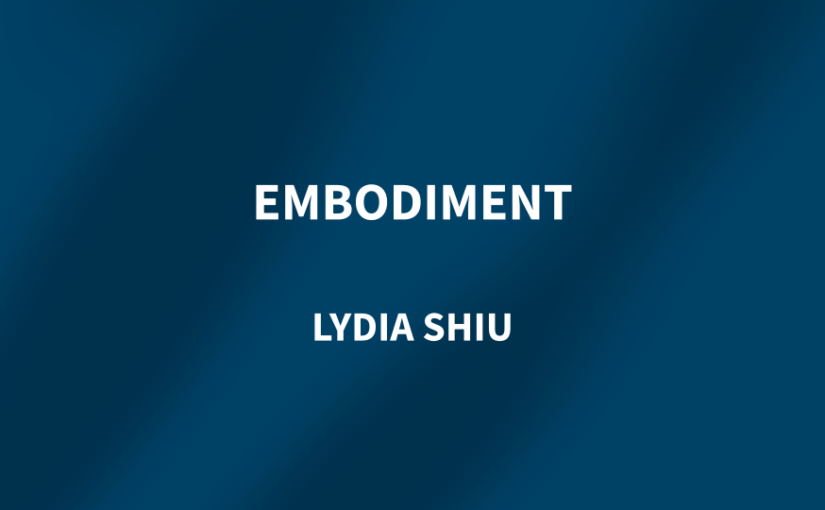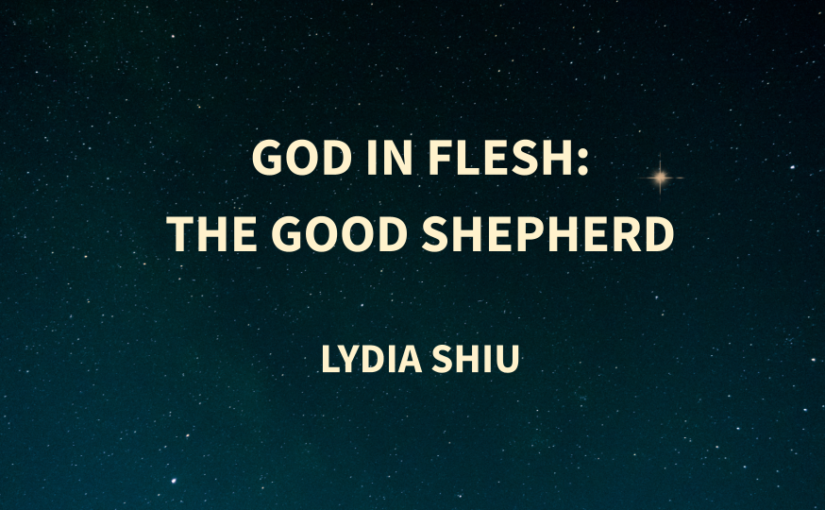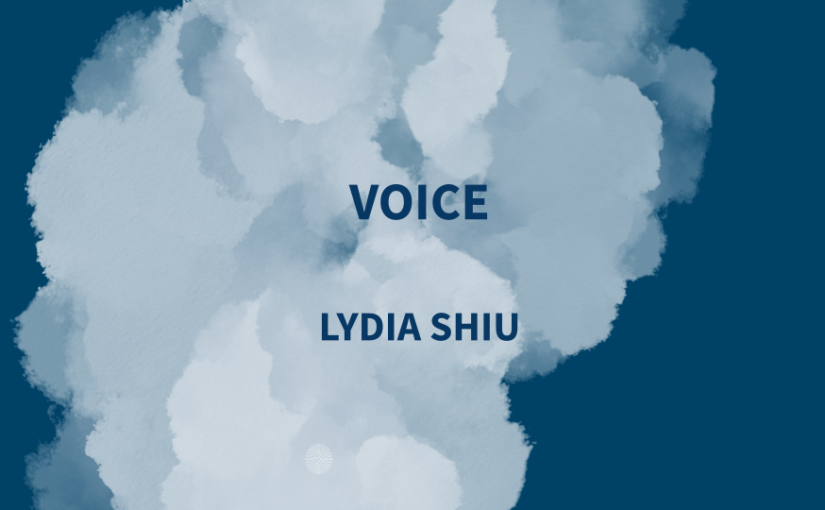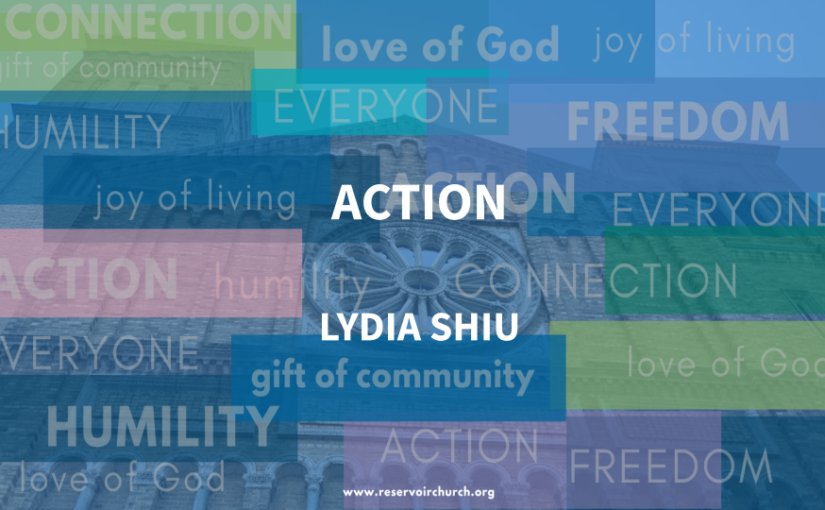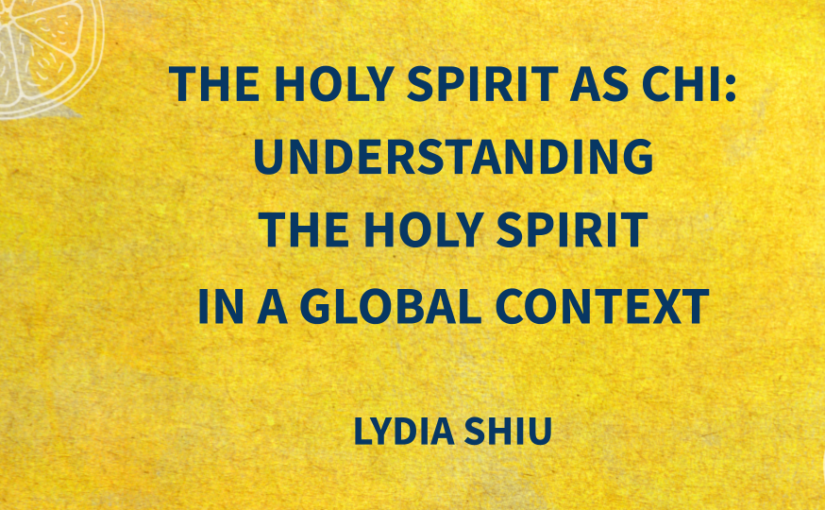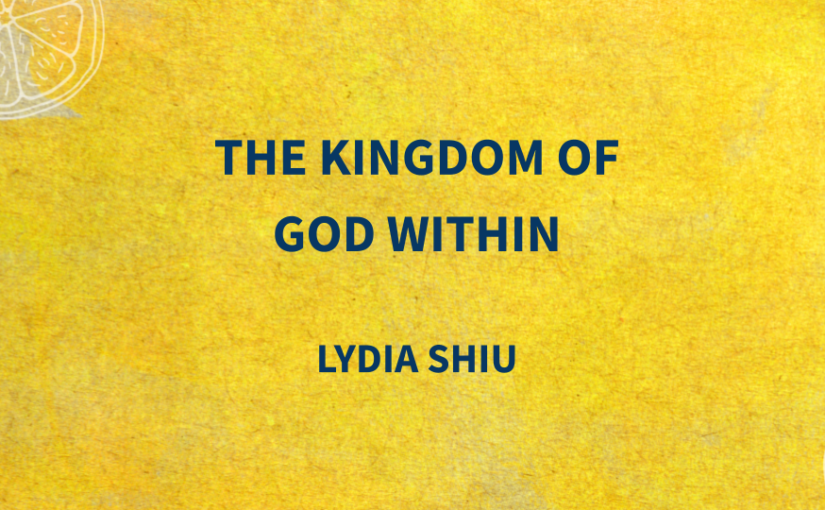1 Corinthian 12:12-27
12 Just as a body, though one, has many parts, but all its many parts form one body, so it is with Christ.
13 For we were all baptized by[c] one Spirit so as to form one body—whether Jews or Gentiles, slave or free—and we were all given the one Spirit to drink.
14 Even so the body is not made up of one part but of many.
15 Now if the foot should say, “Because I am not a hand, I do not belong to the body,” it would not for that reason stop being part of the body.
16 And if the ear should say, “Because I am not an eye, I do not belong to the body,” it would not for that reason stop being part of the body.
17 If the whole body were an eye, where would the sense of hearing be? If the whole body were an ear, where would the sense of smell be?
18 But in fact God has placed the parts in the body, every one of them, just as God wanted them to be.
19 If they were all one part, where would the body be?
20 As it is, there are many parts, but one body.
21 The eye cannot say to the hand, “I don’t need you!” And the head cannot say to the feet, “I don’t need you!”
22 On the contrary, those parts of the body that seem to be weaker are indispensable,
23 and the parts that we think are less honorable we treat with special honor. And the parts that are unpresentable are treated with special modesty,
24 while our presentable parts need no special treatment. But God has put the body together, giving greater honor to the parts that lacked it,
25 so that there should be no division in the body, but that its parts should have equal concern for each other.
26 If one part suffers, every part suffers with it; if one part is honored, every part rejoices with it.
27 You are the body of Christ. Each one of you is a part of it.
Let me pray for us.
Divine Love, Thank you for bringing us here together today. Thank you that you called us, no matter what week we’ve had, what morning we had, that you invite us with love and grace and mercy to be in your presence and receive your love. Help us to open ourselves up to something new.
There’s a Ted Talk from a social psychologist named Amy Cuddy called, “The body language shapes who you are.” It was the one with the study where people took powerful, expansive postures for two minutes, and some would take the opposite, small powerless poses, and then they took their saliva samples for signs of hormones that equate to confidence.
She talked about the universal body language after you win a race — like this, raising your arms up and feeling big. And the universal body language for feeling insecure or scared, like scrunched over, holding your arms. One of her questions was,
“so we know that our minds change our bodies, but is it also true that our bodies change our minds?”
And her study results were, yes. Smiling when you’re sad can make you happier. Lifting up your chin and taking up more space can make you feel more important and powerful. And so they applied this to situations that particularly could influence and matter, like a job interview. Again, they found the study that those who took power poses before their interview were more likely to get the job.
The feedback she got though was,
“well I don’t wanna fake it and get there and feel like an imposter.”
Because this method did feel a bit like
“fake it till you make it.”
She went on to say,
“I get it, because I know what it feels like to feel like an imposter.”
She tells a story about how when she was 19, she got into a really bad car accident that threw her out of the car. She woke up in a head injury rehab and her IQ had dropped by two standard deviations, which was very traumatic to her because she had identified with being smart, called gifted as a child. She was taken out of college and as she tried to go back, she heard them say,
“You’re not going to finish college. There’s other things you can do, you know.”
She struggled with this, having your identity taken from you, your core identity, that equated to being smart. But she worked hard, taking four years longer than her peers to graduate college.
She ended up at Princeton and then Harvard, fighting through the imposter syndrome. One day, a student who had not talked in class the entire semester came into her office. She came in totally defeated, and she said,
“I’m not supposed to be here.”
That’s when she realized, oh my gosh, I don’t feel like that anymore. but she does, and I get that feeling. And so she told her,
“Yes, you are! You are supposed to be here! And tomorrow you’re going to fake it, you’re going to make yourself powerful.”
The student came back months later, she had not just faked it till she made it, she had actually faked it till she became it. So she had changed. And Cuddy tells the audience,
“don’t fake it till you make it. Fake it till you become it. Do it enough until you actually become it and internalize it.”
Now when the Apostle Paul was writing to the Corinthian church, he had heard the same thing, in our text today,
“I don’t belong here.”
“I’m not supposed to be here.”
“ I am not a hand, I do not belong to the body,”
“ I am not an eye, I do not belong to the body.”
As the church was facing conflict, corruption, divisions and just general drama, the church sometimes didn’t know how to be the church. What is the church anyway? What are we supposed to be doing? Paul said, the church is the body of Christ.
We’ve been in a series called Seven Big Words, simply focusing on one word each Sunday to unpack and our word for today is Embodiment. I want to dig deeper with you together, what does it mean for us to be the Body of Christ, to embody Christ? Maybe we’re not facing conflict, corruption, and division as a church, but we sure are set in a world, post-pandemic, often politically and racially divided, and maybe how can Reservoir be an agent of healing and a voice of love just as Jesus was in his time and culture? How can we, Reservoir Church emulate and be the body of Christ in our word today? What would that look like?
What is embodiment?
Embodiment: is a tangible or visible form of an idea, quality, or feeling.
The representation or expression of something in a tangible or visible form. It is our thoughts, feelings, ideas, theology, values, coming alive and taking a bodily form.
- What do we believe in?
- Maybe hope, love, justice, mercy. Well how is that embodied?
- What does that look like?
That’s what a church is supposed to be. Not just a building with a pastor who preaches such concepts, we all listen, and go back to our homes with feel-good thoughts, but the church is supposed to SHOW that in action all throughout the week in our hands, in our work, in our bodies. The church isn’t what the building looks like, what it says on its website, or even what’s preached. It’s the people.
I’ve heard people say sometimes,
“I really wish the church would…”
as we’re standing in church on a Sunday morning. And the question I always want to ask is, who is the church? Is the church Steve? Is the church the staff? It’s not! The church is you. The church is you and you and you and you. The church is you leading a community group. The church is you coming to church at 8:30am to set up the coffee and you running late into worship when the sermons started. The church is you sitting up in the front with your arms crossed and you sitting in the back with your head down low. The church is you standing by the bathroom striking a conversation with someone you saw crying during worship. The church is you texting on a Tuesday morning to someone you know who has a surgery that day with words of hope and encouragement. The church is you laughing out loud about the hard things that went really wrong during the week with someone who can laugh with you because they too had a crazy annoying week at work. Do I need to go on?
And it’s almost funny how similar our text is to what I hear sometimes. I have heard this from some of you, actually many of you.
“Oh I am not (fill in the blank) so I don’t belong.”
“Oh I don’t come every Sunday, just whenever I can.”
“I did not grow up in church.”
“I’ve been coming on and off for about 6 years.”
“I don’t really know how to be Christian”
“I’m fairly new to church. I only started coming out right before the pandemic.”
All spoken to me by people I literally met at church. It’s funny how many of us feel like outsiders.
Let me shift for a minute to talk about what it means to be the “body of Christ,” I’d like to unpack the word Christ. Sometimes we use the words Christ and Jesus, interchangeably. Like Christ is Jesus’s last name. It’s not. What does the word Christ mean? It comes from the Greek word, Christos, meaning, “the anointed one.”
So it simply means Jesus the anointed one. If we understand the “body of Christ” as simply, interchangeable name for Jesus (which is how it has often been by many recent understandings) and by that I mean, in the last 50 years conclusion and assumptions and theological implications –which most of us in this room have probably been most exposed to by pure incident of time, but there were other understanding of Christ, not just the person of Jesus. Why does this matter?
Church is the body of Christ, often just meant, church, be like Jesus. Be Jesus in this world. And in many senses that is true. Because Jesus did very visibly show us how to be in this world with divine love.
In the book titled The Universal Christ by Richard Rohr, a notable Franciscan priest, he talks about the beginning of the Gospel of John,
“In the beginning was the Word already existed. The Word was with God, and the Word was God. He existed in the beginning with God. God created everything through him and nothing was created except through him.”
Now in the past, even though this text made no sense to me, here’s how I was taught about it. See? The Word, he’s talking about Jesus. The Word, is Jesus. So you see, Jesus was there all along. Jesus was at the beginning of Creation. Nothing came into being except through him.
And again, it made no sense, but I just chalked it up as, Oh John, you are just so poetic. And I didn’t ask, how is the Word an unmistakable reference to Jesus? But just like any metaphor, it is and it isn’t. John was being poetic, which means it has this meaning and so so so much more to offer us than one conclusion.
Richard Rohr says
“The word became flesh” in (John 1:14), (John is) using a universal and generic term (sarx) instead of referring to a single human body. In fact the lone word “Jesus” is never mentioned in the Prologue! Did you ever notice that? “Jesus Christ” is finally mentioned but not until the second to last verse.”
It is true that in Jesus, what happened is that a thought became a body. Word became flesh. And it is a visible sign and a reminder that God indeed is one who made divine things into earthly things. As Rohr says quote:
“This infinite Primal Source somehow poured itself into finite, visible forms, creating everything from rocks to water, plants, organisms, animals and human beings–everything we see with our eyes.”
Though many Christians think of baby Jesus when we think of the word “Incarnation” but, Rohr calls the creation first Incarnation, because the word “incarnation” simply means that
“God joined in unity with the physical universe and became the light inside of everything,”
including and perhaps quite powerfully and so sweetly in the person of Jesus. Rorh says that Franciscans say it like this,
“Creation is the First Bible and it existed for 13.7 billion years before the second Bible was written.”
Stay with me please. I know I’m throwing a lot.
Again, what does it mean to the Body of Christ?
Some of us have confused the Christian mantra to be, be like Jesus. Be like Jesus. And again, that’s one way to put it. But, And also, it means, You are the body of Christ. Christ – the anointed one. YOU ARE THE ANOINTED ONE! The question isn’t, “what would Jesus do” but “what would an anointed one do?” You are the concept of the anointed one embodied through who you are, what you do, how you live right now, right here.
“Follow Jesus” wasn’t just about trying to be like him, taking on his character, learning his ways, which again, is one way to follow his ways, but another way to think of it is, Jesus knew how close and intimate he was to God. So much so that he called God Abba. Now learn from that. Call God Abba, and feel in your body what it means to be a beloved child of God. Understand just like how Jesus understood his own holy anointing, that you are my child, in whom I am well pleased, which is the voice from the heaven spoken when Jesus was baptized and the voice we are to hear in our baptism, You are my beloved.
Please hear me. You’re not just a sinner who needs Jesus. You are a beloved child of God, just like Jesus. Look at him. Look how he shined. It’s not meant that his light is just supposed to rub off on you even though you are despicable and undeserving. That was a wrong message and how torn I am to realize, how many years I spent, of my life, thinking that GOSH, why won’t his light rub off no matter how hard I try. The message was always that that same light is in you all along.
So what does the call for the church, for our church to be the body of Christ, mean? It’s not, let’s try our hardest to be more like Jesus. It’s not a call, “be more like Jesus”, it’s a pronouncement.
Verse 27 says,
“You are the Body of Christ.”
You are the anointed one.
That’s the beginning and the starting point of what it means to be Christian. It’s not, oh dear, do try to be more like this good boy Jesus. It’s, you are loved and holy and anointed just like I am union with Jesus, so I am with you. Isn’t that a pretty big difference?
I get emotional about it because it’s something that has made all the difference.
You see, when I first felt like I was being called to be a pastor, I too said the same thing. I do not belong. I am not supposed to be here. Do you know who I am? Do you know what I’ve done? If you saw me in my worst moments in my life, heck in my week, you would not approve of me standing here preaching to you. Most every one of you might say, “you’re one to talk.”
Just to be clear, I’m not a pastor because I’m some kind of role model. I just have had enough grace and mercy spoken to me that has covered me so well that I’m okay with being visibly publicly a stumbling bumbling mess of a person who struggles with her faith. Who struggles with embodying her faith to even her own children when they are relentlessly crying literally for no reason. Who struggles with feeling tired, overworked, overwhelmed, like I’m not enough, like I’m not producing enough, replying to email fast enough, like I’m not enough.
And you know what? That’s alright. I’m not the whole body. I’m just a pinky. Or let’s give myself a little more credit, maybe I’m a hand. But a hand needs a wrist, a wrist needs an elbow, an elbow does well with a shoulder and a shoulder with shoulder blades.
You belong. You are the church. You are needed.
I was going to go on about the challenges of embodiment, and how much our body actually has experienced trauma and how much healing we need. That Ted Talk I mentioned, she said as a passing comment, when she was talking about powerless postures,
“So women are much more likely to do this kind of thing than men. Women feel chronically less powerful than men, so this is not surprising.”
And the reality of how chronically women and people of color feel less in their bodies… but alas I’ve run out of time. You know the whole body metaphor of how much it suffers the whole body when you have one toothache. It’s in the rest of the text, how,
“those parts of the body that seem to be weaker are indispensable.”
Go back and read it cause I didn’t have time to touch on it.
Let’s heal one another through our church. Let’s not just talk about it or think about it or believe it but let’s really really do it and be it. Let’s be the holy and anointed ones who do everything from the groundedness of knowing that we belong, that we are inextricably connected through the divine love who holds and cradles our aching bodies. And as we figure it out, if we’re not sure how to, let’s fake it till we become it. Let me pray for us.
Holy and Loving God, you have given us your light in each and every one of us. Give us the eyes to see. Help us to know how absolutely belovedness, that from there, everything we do will derive. Help us drive that deep into our hearts we pray. Amen.


